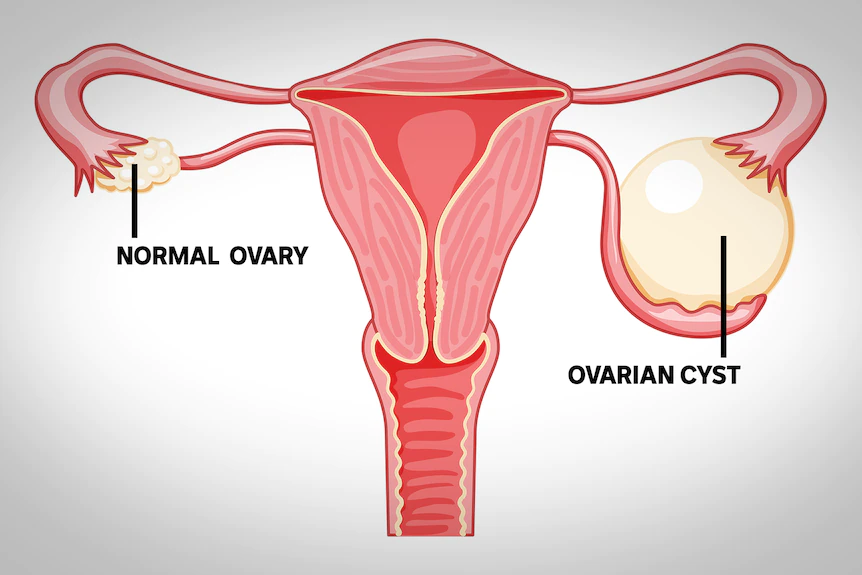Apple Cider Vinegar for Gas, Bloating, Constipation, and Indigestion
Digestive discomfort is a common concern that can significantly impact our daily lives. Issues like gas, bloating, constipation, and indigestion can disrupt our routines and cause discomfort. While there are various remedies available, one natural solution gaining popularity is apple cider vinegar for gas or overall digestive health.
In this comprehensive guide, we’ll explore how ACV can help alleviate digestive woes like gas, bloating, constipation and indigestion, and provide you with practical tips for incorporating it into your daily routine.
Understanding Digestive Woes

Before delving into the benefits of apple cider vinegar, it’s essential to have a clear understanding of the common digestive problems it can address. These issues often stem from imbalances or challenges within our digestive system:
1. Gas
Gas in the digestive system is a natural occurrence, but excessive or frequent gas can be uncomfortable and embarrassing. It often results from the fermentation of undigested food by bacteria in the colon. Apple cider vinegar for gas problems can play a role in regulating this bacterial activity.
2. Bloating
Bloating is the feeling of fullness and tightness in the abdomen, often accompanied by visible swelling. It can be caused by excess gas, water retention, or certain foods. ACV’s potential to alleviate gas can also contribute to reducing bloating.
3. Constipation
Constipation is characterized by infrequent bowel movements and difficulty passing stool. It can result from various factors, including a lack of dietary fiber, dehydration, or slow transit time in the colon. ACV may help soften stool and promote regularity.
4. Indigestion
Indigestion, also known as dyspepsia, includes symptoms like abdominal pain, bloating, and a burning sensation in the chest (heartburn). It often occurs after eating and can be caused by overeating, consuming spicy foods, or certain medical conditions. ACV’s ability to aid digestion may alleviate some of these discomforts.
The Role of Apple Cider Vinegar

Apple cider vinegar for gas, made from fermented apple juice, contains various beneficial compounds that can promote digestive health.
1. Acetic Acid
ACV is rich in acetic acid, which can aid digestion by breaking down complex carbohydrates, preventing the overgrowth of harmful bacteria, and facilitating the absorption of essential nutrients. This acid is known for its potential to improve the overall efficiency of the digestive process.
2. Probiotics
Fermented foods like ACV contain probiotics, which are “friendly” bacteria that support a balanced gut microbiome. A healthy gut flora is essential for efficient digestion, as it helps maintain the proper environment for nutrient absorption and waste elimination.
3. Pectin
Apple cider vinegar for gas and constipation contains pectin, a type of soluble fiber. Pectin can improve bowel regularity and alleviate constipation by softening stool. This fiber also contributes to a feeling of fullness, which can help prevent overeating.
4. Enzymes
Raw, unfiltered ACV contains enzymes like amylase, which helps break down carbohydrates, and pepsin, which aids in protein digestion. These enzymes may enhance the digestive process and reduce the likelihood of indigestion.
Using Apple Cider Vinegar for Gas or Digestive Relief

Now that we understand how apple cider vinegar for indigestion and gas
can benefit, let’s explore practical ways to incorporate apple cider vinegar for gas into your daily routine for relief from gas, bloating, constipation, and indigestion:
1. Diluted ACV Drink
To use apple cider vinegar for gas and bloating, mix one to two tablespoons of raw, unfiltered ACV in a glass of water. Consume this before meals to improve digestion and prevent excessive gas and bloating. The acetic acid in ACV may help balance the pH levels in your stomach.
2. ACV and Honey
Combine one tablespoon of ACV with one tablespoon of honey in warm water. Drink this concoction in the morning on an empty stomach to promote overall digestive health. The sweetness of honey can make the mixture more palatable.
3. ACV and Ginger Tea
Ginger is known for its digestive benefits, including reducing gas and bloating. Brew ginger tea and add a teaspoon of ACV for a soothing and digestive-friendly beverage. Ginger’s anti-inflammatory properties can also help ease indigestion.
4. Salad Dressing
Use ACV as a base for salad dressings. Its tangy flavor can enhance the taste of your salads while promoting better digestion. The combination of ACV and healthy greens can provide valuable dietary fiber.
5. ACV and Lemon Water
Squeeze fresh lemon juice into a glass of water and add a teaspoon of ACV. This refreshing drink can aid digestion and reduce bloating. Lemon juice also provides vitamin C, which supports overall health.
6. ACV Capsules or Gummies
If the taste of ACV is unappealing or you’re often on the go, consider taking it in supplement form. ACV capsules or gummies are widely available and provide the same digestive benefits without the strong taste.
Precautions and Tips of Using Apple Cider Vinegar for Gas, Bloating and Constipation

While apple cider vinegar for gas can be a valuable addition to your daily diet, there are some important considerations:
1. Dilute It
Always dilute ACV with water or other liquids before consumption. Undiluted ACV can be harsh on tooth enamel and the esophagus. A common recommendation is to mix one to two tablespoons of ACV in a large glass of water.
2. Quality Matters
Choose raw, unfiltered, and organic apple cider vinegar with the “mother” intact. The “mother” contains beneficial enzymes and probiotics that enhance its digestive benefits. This type of ACV is often cloudy and contains sediment.
3. Start Slowly
If you’re new to apple cider vinegar for gas or constipation, start with small doses to allow your body to adjust. Some people may experience mild digestive discomfort initially. Begin with a teaspoon of ACV diluted in water and gradually increase the amount.
4. Consult a Healthcare Provider
If you have chronic digestive issues, underlying health conditions, or are taking medications, consult a healthcare provider before using apple cider vinegar for gas and constipation is a remedy. They can provide personalized guidance and ensure there are no potential interactions.
5. Balanced Diet
While ACV can aid digestion, it’s essential to maintain a balanced diet rich in fiber, fruits, vegetables, and whole grains for overall digestive health. A well-rounded diet complements the benefits of ACV.
Final Thoughts
Apple cider vinegar for gas, bloating and constipation act as a natural and accessible solution. By incorporating ACV into your daily routine in a safe and controlled manner, you can potentially enjoy improved digestive comfort and overall well-being. However, it’s essential to remember that individual responses may vary, and ACV is not a one-size-fits-all remedy. If you experience persistent digestive issues, consult a healthcare professional for a thorough evaluation and personalized guidance on managing your specific concerns.





































